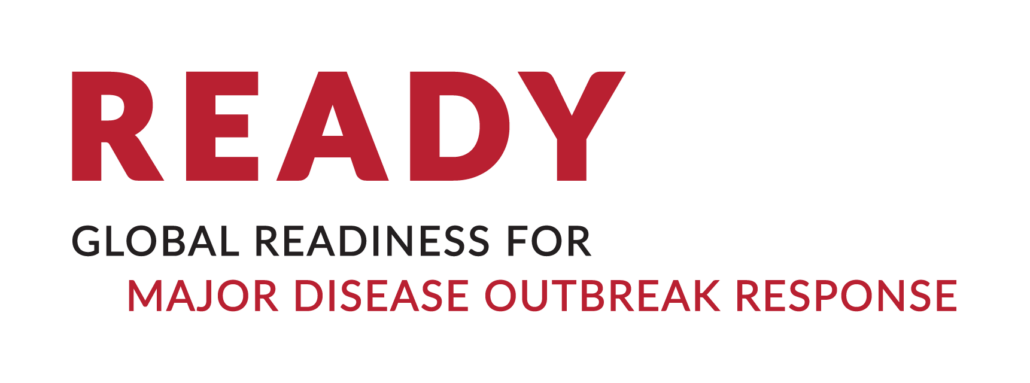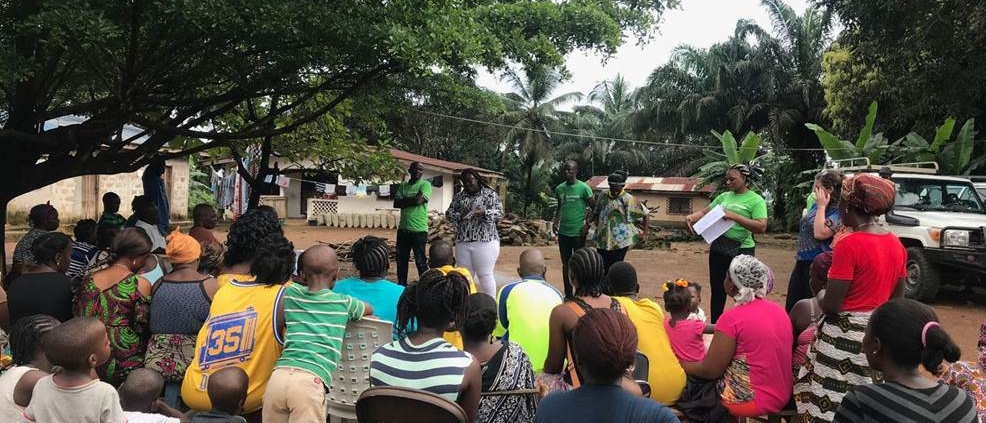Operationalizing One Health to Support Humanitarian Sector Outbreak Response
April 16, 2021 | 08:00-09:00 Washington (GMT-4) // 13:00-14:00 London (GMT+1) | Speakers: Dr. Catherine Malachaba, EcoHealth Alliance; Dr. William Karesh, EcoHealth Alliance; Dr. Katherine Newell, Save the Children; Emma Diggle, Save the Children
Please note: Due to a technical error, this recording is missing the first ten minutes of the webinar. | View presentation slides
The One Health approach has gained interest at intergovernmental and national levels as a key focus of COVID-19 recovery efforts. However, operationalization remains limited in practice, and to date there has been poor integration of the humanitarian sector in One Health initiatives.
This webinar provided an overview of the One Health concept and practical guidance on entry points for One Health approaches targeted to humanitarian sector operations for outbreak response. Tools and case studies showcased how One Health approaches are advancing multi-sectoral coordination in community-based surveillance and risk communication, development and implementation of plans and response measures, and design and use of information management systems. A key goal of the webinar is to promote dialogue on how One Health strategies can be best leveraged to add value to existing humanitarian operations to improve readiness for health threats and emergencies at the human-animal-environment interface.
This event was hosted by the USAID Bureau of Humanitarian Assistance-supported READY initiative. Live interpretation was provided in French for this event/La traduction en direct était fournie en français.
SPEAKERS
Dr. Catherine Machalaba serves as senior policy advisor and a senior scientist at EcoHealth Alliance, a scientific non-profit organization working at the nexus of conservation, global health, and capacity strengthening. She was a lead author of the World Bank Operational Framework for Strengthening Human, Animal and Environmental Public Health Systems at their Interface (“One Health Operational Framework”) published in 2018 to assist countries and donor institutions in implementing One Health approaches. She chaired the American Public Health Association (APHA) Veterinary Public Health group, where she led development of APHA’s One Health policy statement. She holds degrees in Biology and Public Health and a PhD in Environmental and Planetary Health Sciences.
Dr. William B. Karesh is the Executive Vice President for Health and Policy for EcoHealth Alliance. He served as the inter-project liaison for the USAID Emerging Pandemic Threats PREDICT-2 program (a $140M effort to prevent infectious diseases in 30 countries) and is a member of World Health Organization’s IHR Roster of Experts. Dr. Karesh also serves as the President of the World Organisation for Animal Health (OIE) Working Group on Wildlife and a Co-chair of the IUCN Species Survival Commission Wildlife Health Specialist Group. In 2016, he was appointed as a member of the Council on Foreign Relations.
Dr. Katherine Newell is an Epidemiologist at Save the Children, focusing on epidemics and global outbreaks of infectious diseases. Katherine has also worked on strengthening disease surveillance systems in South Africa and Cox’s Bazar, Bangladesh, for the World Health Organization. She has diverse public health experience and, prior to her position at Save the Children, worked for the University of Oxford in collaboration with WHO to develop the clinical case report forms for COVID-19 used to inform public health and clinical operational response. She holds degrees in Public Health and a PhD in Epidemiology.
Emma Diggle is a Senior Health Advisor at Save the Children, focusing on vaccine, epidemic, and pandemic preparedness and response. She holds a clinical degree in nursing and a degree in public health. Emma has extensive field experience, in particular responding to a number of different infectious disease outbreaks in different humanitarian settings. She has a particular interest in the role public health information and surveillance can play in outbreak detection. In addition to supporting various country programs, Emma sits on a number of global working and academic groups.
Subscribe to READY updates to receive announcements of future webinars.


This website is made possible by the support of the American People through the United States Agency for International Development (USAID) under the READY initiative. READY (not an acronym) is supported by USAID’s Bureau for Democracy, Conflict, and Humanitarian Assistance, Office of U.S. Foreign Disaster Assistance (OFDA) and is led by Save the Children in partnership with the Johns Hopkins Center for Humanitarian Health, the Johns Hopkins Center for Communication Programs, UK-Med, EcoHealth Alliance, and Mercy Malaysia. The contents of this website are the sole responsibility of Save the Children. The information provided on this website does not necessarily reflect the views of USAID, any or all consortium partners, or the United States Government, and is not official U.S. Government information.


